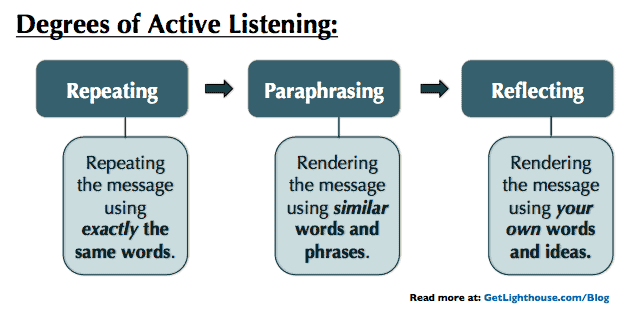Congratulations!
You've been promoted. Or, maybe, you're starting a new job at a new company. Either way, you have a fresh start– and a new set of challenges.
You only get one chance to make a first impression as a new manager, so you want to make the most of it.
That's why today we're helping you with a list of the most important things to do starting on your first day as a new manager.
How do I become a first-time manager?
Before jumping into our list, some of you reading this may be aspiring leaders looking for tips on how to become a new manager.
If that's you, and you want to learn:
- What it takes to be a manager
- How to get management experience without being a manager
- And tips to help you get noticed and promoted to a leadership position
... Start first by reading our guide: How to Become a Manager: A Guide for Aspiring Leaders.
Now, assuming you have the job, let's get to today's list.

7 Tips for First-Time Managers: How to Succeed as a New Manager
As a new manager, or a manager in a new job, you've got a lot to do.
First-time managers can often feel overwhelmed by their new responsibilities and everything that comes with them, so we organized the below tips to help you hit the ground running.
You can work on them in whatever order you choose, but we suggest you first digest the list in the sequence we have it below to get a clear picture of what you need to do to get started on the right foot.
Here are seven things you should start working on in your first day as a manager:
- Adopt a growth mindset
- Build rapport with everyone you can
- Start one on ones with your team right away
- Practice asking good questions & listening
- Master the art of managing up
- Get to know your peers
- Look for some quick wins

1. Adopt a growth mindset
Adopting a growth mindset is the most important mental shift you need to make as a new manager.
As a new manager, you have a lot to learn. It's a career change compared to being an individual contributor, not just a promotion. If you don't adopt a growth mindset, you won't be able to learn and develop the skills necessary to be a good leader.
Even if you've been a manager before, recognize that being at a new company, you'll have a lot to learn as well. Every culture is different, so what worked at one company and one team, may not work at your new job.
As Stanford psychologist Carol Dweck spoke about in her TED talk, belief is the key ingredient to improvement. If you have a fixed mindset – you believe that people can't change or improve – it directly impacts your ability to grow and develop.
However, it doesn't just change how you act and treat yourself, it affects how you treat your entire team.
A growth mindset makes you a better leader
With a growth mindset, you create a fertile environment for you to develop the necessary skills to succeed in your new role. When applied also to your team, you recognize they can grow and learn as well.
To better understand if you have a growth or fixed mindset, use the image below based on Dweck's research as a reference when facing challenges, responding to criticism, and other key scenarios. Study how you respond and how you can improve that response to start shifting toward a growth mindset.

Much of what we're going to talk about in the following tips is about placing yourself in situations where you have the chance to learn and grow from those around you.
There are more opportunities to learn and grow than you may realize. In addition to books or a course, feedback from your team members or boss, situations your peers went through that resulted in a helpful lesson, or a useful tip a fellow manager shares with you all can help you grow.
The key is to have an open mind. Look for opportunities to learn new things, and get feedback, so you know where to focus your efforts.
Further reading:
- Books are one of the best ways to learn and pick up new leadership skills. Check out this list for the best leadership books for first-time managers: The 8 Best Books for First-Time Managers on Leadership and Self-Improvement
- For many without it, developing a growth mindset requires a big mindset shift. Here are 6 Incredible Ways to Change Your Mindset to Succeed
- If you're a senior leader looking for ways to help your new manager, see: New Manager? 3 Tips to Help Them Succeed

2. Build rapport with everyone you can
Rapport is the foundation of great working relationships.
The trust and understanding you develop through building rapport leads to:
- Healthy, open communication
- A better understanding of what makes others tick
- Makes it easier to give those people the benefit of the doubt
- Creates a healthy environment to give and receive feedback between you and them
Rapport is the foundation of a strong relationship because of a simple idea: with understanding grows empathy and compassion.
Think about how your relationship with a friend or loved one differs from a stranger. Someone you know you will go out of your way to help, listen to what they have to say, and value their opinion. A stranger? Not so much.

Find each of your team members' rhythm
A key way to build rapport is to figure out the "rhythm" of your team members. This is a concept former Yahoo! CEO Marissa Mayer says is the real cause of burnout.
"I tell people: Find your rhythm.
Your rhythm is what matters to you so much that when you miss it you're resentful of your work.”
When your team members are thrown off their rhythm because you asked them to come in on their day off, or work late on Wednesday, their morale plummets and resentment begins to build up.
But if you had taken the time to find out that those asks interfered with their rhythm, such as a habit of going rock climbing on Saturdays, or a family dinner on Wednesday nights, you would avoid their resentment.
Camille Fournier, former CTO of Rent the Runway, put it best when she said about building rapport:
"Treat your peers as interesting fellow humans, and you may be surprised what it does for their motivation, dedication, and engagement."
How to build rapport
There are a lot of ways to build rapport. The key is finding out what's important to them and what you may have in common, such as:
- A likeness in your upbringing or background
- Similar family or cultural background
- You like the same sports teams
- Enjoy the same hobbies
- Watch the same shows
- Or have similar goals or values
One simple thing you can do is ask to go out for coffee with those around you. Use it as a chance to speak with them in a less formal setting, and get to know them.
If you're reading this as someone hiring new managers, consider including a gift card to the local coffee shop in your employee onboarding package to encourage this.
Further reading:
Want to learn more about building rapport, and get some ideas how to do so even with people you think you have nothing in common with? Start here:
- Read "Why You Should Build Rapport with Everyone You Manage."
- Learn 82 Ways to Build Rapport here

3. Start one on ones with your team right away
One on ones are the most powerful tool you have as a manager. They give you a way to:
- Build rapport
- Give and receive valuable feedback
- Uncover and work through issues
- Develop your team members, and even
- Build future leaders
One on ones are the secret weapon of great managers, however, it takes a while to develop a solid one on one foundation with your team members. For that reason, it's important to start having one on ones with your team right away.
The sooner you start having regular one on ones with your team, the sooner you'll have a strong foundation of rapport and a stream of feedback coming your way.
With those in place, you can start catching little issues before they become major problems. You can also then start working on being a multiplier for your team.
Ed note: You can learn how to have amazing 1 on 1s in our newest, bite-sized program 'The 1 on 1 Master Class' by using the link below.

How to start one on ones with your team
The value of regular one on ones change over time.
When you first start out, they help you build a healthy foundation with your team. You can build rapport in a private setting, while also finding out the most important things to help them thrive in their work.
Over time, your one on ones will then evolve based on the needs and the career of each team member. Some will need coaching to improve performance, while others will be looking for career growth and new opportunities.
To learn more and to find out how to anticipate that evolution, read our guide on one on one development: How to make the most of your 1-on-1s throughout you and your team's careers.
Further reading:
If you want to learn more about these crucial meetings, so you make the most of them, learn more below:
- New to one on ones? Need more convincing? Read why they're so important: 25 Reasons You Should Have One on Ones with Employees
- Learn How to start one on ones with your team
- Here's an in-depth One on one meeting template to help get you started
- Read this before your first one on one: What to Expect In Your First One on One Meetings with an Employee
- One on one meeting tips: 30 Dos and don'ts for effective one on one meetings (including a printable PDF for you and your team)
- If you're a new manager at a company you already work for, then you may be managing former peers. If so, this post can help you with that awkward situation: What to Do When You Start Managing Former Peers.

4. Practice asking good questions & listening
As we talked about in the last point, those one one one conversations with your team members are a valuable opportunity to build rapport and gather feedback, among many other things.
Two of the most important keys to making the most of those one on ones, and any communication you have with your team members, boss, or peers, are asking the right questions and being an effective listener.
A manager's job is to ask the right questions
Asking good one on one questions can unlock insights to improve your team's performance, or uncover an issue that you didn't even know existed. Some of our favorites for when you start managing new team include:
- What have your past managers done that you'd like me to also do, or not do?
- What are your career goals and where did your last manager leave off with them?
- How do you like to receive feedback? What works best for you?
Work on developing a habit of asking questions more than feeling like you have to have all the answers. This curiosity mindset will help you uncover insights that help you become a better leader and manager to your team.

It's also about becoming an effective listener
To make the most of asking the right questions, you need to be an effective listener.
Most people are used to conversing in a way that they're just waiting for their next chance to speak. When they do this, they're missing out on truly learning what the other person has to say.
Instead, stay focused on the things the other person is saying. Pause and give them time to fully express themselves. Then ask a follow-up question or two to ensure you understand everything they're saying.
As you get comfortable with those habits, the final step is to practice Active Listening Skills:

When you think you've heard them out completely, take a moment to state what you think they said back to them using your own words.
They can then tell you if that's correct or not, and clarify anything. This ensures you understood what they communicated to you before you move onto the next thing you're thinking of.
Further reading:
Asking good questions is a skill to develop like any other. Fortunately, we have a collection of the best battle-tested questions for a variety of situations to help you:
- Here's out mega guide of hundreds of one on one meeting questions for every situation you could have with your team
- There are also questions you should ask specifically when you're managing a new team
- Questions for managing your partially remote team: Remote Management: 41 Questions to Ask Your Hybrid Team
- Learn how to be a more effective listener here.

5. Master the art of managing up
Similar to investing time in building a strong relationship with your team, you also want to invest time in doing the same with your manager.
The reality is, in most cases, you can't pick who your boss is. That can make things difficult if they aren't the easiest to work with. In fact, Gallup found that more than 50% of people have, at one point or another, had a manager they disliked so much they quit their job over it.
Fortunately, the quality of you and your boss's relationship isn't entirely in their hands. You have the power to improve that relationship by managing up.
By mastering the art of managing up and developing a strong relationship with your boss, you'll avoid your job becoming frustrating. You'll also set up your team to get more of the support they need as you'll have your boss's ear.
Even if your manager seems like they'll be difficult to work with, managing up will make that relationship better than it would have been.
Start off on the right foot
Now is your chance to start off on the right foot with your manager. Take advantage and build a good first impression.
Learn their management style, uncover their preferences and their pet peeves, and figure out the best way to work with them.

Here again, asking the right questions is key (like these questions specifically for managing up). They can help you learn essential things about your manager, and avoid moments where you say, "I wish I knew that before..."
Here are a few of our favorite questions to ask your manager:
- What are your priorities? What wins do you need?
- What have your best team members you've enjoyed working with done when working with you that you liked?
- What's one thing I could do differently or better that would make your life easier?
Asking these kinds of questions at the start of your relationship shows your manager you want to work well with them. This gets you started on the right foot with the person who will decide your performance reviews, promotions, and compensation.
If you then really want to ensure success with them, consider presenting them a 30-60-90 day plan for your new job and asking for their feedback on it.
That will give you a way to make sure you're on the same page on your goals and priorities. It also paints a clear picture of success or failure in your work, so you're focused on what you both agree matters most for you.
Further reading:
Looking to crack the code to managing up well? Here's where to start:
- Advice for managing up at work from experienced leaders
- 18 Questions to ask your manager to improve your relationship and better manage up
- Creating High Performing Teams Podcast: Listen to our discussion on Managing Up: Advice for Managers & ICs to Master the most important relationship at work

6. Get to know your peers
Developing a strong relationship with your team members and your boss are important as you start out. It's also important to work on building relationships with other teams and peers you work with regularly.
Entrepreneur and former VP Engineering & CIO Kate Matsudaira believes these relationships are critical as she said in an interview:
"You should have 1-on-1's with other groups, other teams, other organizations, and other managers that are doing work that interface with you.
Understand how you and your team need to work with other teams."
Get to know your peers, especially the other managers of those teams, so you have a better idea of how you and your team fit with the other parts of the organization.
Peer one on ones, like one on ones with your team, are a great way to build strong working relationships. This will help you fix any problems that come up as you collaborate, and make them more open to your requests if you need something from them or their team.
These meetings create open lines of communication that can reveal problems you'd otherwise never know about. Rather than letting another team quietly resent you or your team, why not proactively prevent it by regularly speaking with them?
Who you should be building these peer relationships with will vary depending on your role, department, and level in the company. A few examples would be:
- An engineering manager would benefit from peer 1 on 1s with product managers and designers their teams work with.
- A sales leader would benefit from building relationships with customer success and account management leaders in their territory.
- A customer success manager would benefit from building relationships with sales leaders and product managers for the product they support.
A simple rule of thumb is that if you depend on their work, or they on yours, you should have a peer 1 on 1 with them. It's also beneficial to meet with peers who would benefit knowing more about your work or vice versa (like customer success managers sharing issues with product managers).
Further reading:
If you want to learn more about peer 1 on 1s, here's good places to start:
- Read our guide to peer one on ones
- More on peer one on ones specifically for product leaders: Peer 1-1s: The Missing Habit Separating Good and Great Product Managers

7. Look for some quick wins
Throughout all your discussions and meeting people, from your team to your boss and your peers, look for some quick wins to build momentum:
- If there are small things you can do that will make your team happy, do it.
- If something small done by your team would help another team, do it.
- If you can tweak a process to be better, get team buy in and do it.
Whatever it is, any quick wins you can snag early on will help build momentum that you can build on.
That momentum is powerful as it can help prevent burnout, especially when that progress is related to things that are important to your team members.
Quick wins = progress = a happy, motivated team
According to researchers at Stanford and the University of Virginia, the Progress Principle is key to long term happiness at work; small, incremental progress on what matters most is the main reason people feel satisfied at work.
It's an effective remedy to the learned helplessness that often develops in teams and companies when employees feel like nothing they do makes any difference.
As you speak with your team and get to know their processes, look for small wins that can give your team a sense of momentum.
If you listen carefully, you'll find that your team members will often bring up issues and ideas, so it's not all on you to figure things out. Also, by acting on what they tell you, you'll build more trust and support from them; they'll know you're truly listening and care.
Further reading:
Listening is a very important trait for a manager, and so is taking action. If you want to help your team build momentum on what's important to them, start here:
- The two words leaders should fear most that cause employee disengagement
- How to help your team achieve their goals

Get started on the right foot
Whether you're a first-time manager, or you're a seasoned manager getting ready to jump into a new role, everything that comes with that new job can be overwhelming.
How you approach it can make all the difference.
Our seven tips will help you transition smoothly into your new job, and help you start planting those critical seeds that will make you a successful manager long-term.
And don't forget to keep developing your growth mindset by investing in new learning on a regular basis.
A good place to start is with these further reading topics from the Lighthouse blog that will help you or someone you know that is a first-time manager become an even better leader and manager:
Further reading:
- Know someone recently promoted? Help them be successful: How to Ensure a New Manager Succeeds.
- Make sure you're a manager for the right reasons: Signs of a Bad Manager.
- Consider this the first-time manager survival guide: Creating High Performing Teams Podcast: The Most Important Skills for Managers to Master.
- Avoid the pitfalls that can come from promoting from within so it works out: The Top 10 Reasons Companies Fail at Promoting from Within.
- And a great first-time manager training resource: Creating High Performing Teams Podcast - 8 Essential Things You Must Consider When Becoming a Manager.
Want to build up your management skills? Lighthouse Lessons can help you.
Our bite size, highly actionable programs are perfect for even the busiest of managers. Become a better leader like Jonathan Silva did by learning more and signing up here.

What should a manager do in their first 30 days?
You only have one chance to make a good impression as a new manager, so you need to make it count. How do you do that?
Here are a few things you can do in the first 30 days as a new manager:
- Start building rapport with everyone, including both your teammates and peers
- Begin having 1 on 1s with everyone on your team
- Ask lots of good questions and practice your listening skills to learn about your team and their challenges
- If you're starting at a new company, learn about your manager and figure out how you can best work with them
This is just the beginning. For a more comprehensive list of tips for first-time managers, read the rest of our guide: 7 Tips for First-Time Managers: How to Win as a New Manager.
Why do first-time managers fail?
There are several reasons why new managers fail. Not everyone is cut out to be a manager, but if it's your goal, here are things to watch out for:
- Not building a feedback loop: Learn about your team through regular 1 on 1s and create an ongoing feedback loop. That way, you can find out about issues early, before they snowball.
- Burning out their team: It's a sense of progress that makes our work fulfilling. So, look for some easy wins early on to build a sense of momentum and keep building on that as time goes on to help keep your people from burning out.
- Not developing a growth mindset: To be a great manager, you need to be constantly learning and growing. A growth mindset ensures you see constant learning as an opportunity to grow and become better.
What should a first-time manager not do?
There’s a lot to learn and take on as a first-time manager, but what about what you shouldn’t do? Here are a few mistakes to avoid making:
- Don’t take the job for the wrong reasons (i.e. money): Without the proper motivation, you won’t be a good manager.
- Stay focused on individual contribution: Shift your focus to becoming a multiplier of your team’s capability.
- Fail to adopt a growth mindset: Being a great manager requires constant learning and the development of new and better skills. Without it, you’ll struggle and stagnate.





